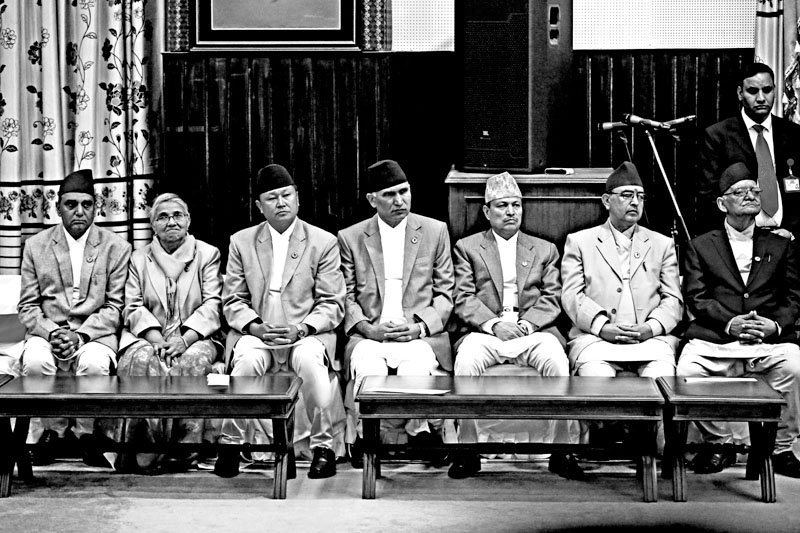LETTERS: Right to information
Prime Minister KP Sharma Oli on Friday administered the oath of office and secrecy to the newly appointed six
ministers of state. The constitution of the federal republic of Nepal, 2072 guarantees the right to information of the sovereign people. No minister or a minister of state can deny the right to information of the people. To keep anything secret especially agreements to share power and other attractions by the ministers would be unconstitutional. I do not understand what the ministers are expected to keep something secret from the people. During the Panchayat days there was no right to information. It was not unnatural for the palace to maintain secrecy of any matter related to public importance by the concerned ministers. In a democracy secrecy and non-transparency would seem unconstitutional. It is true that nobody should disclose the secrecy of any matter that is detrimental to the national security and sovereignty. The right to information guaranteed by the constitution is related to issues of public importance. The people have the right to know from the government agencies about the policies and programmes being implemented for the well being and protection of the people who will be directly or indirectly affected by such policies and programmes.
Megha Nepal, Kathmandu
Rule breaker
The recent enthusiasm regarding talks between two nuclear powers of south Asia from the perspective of regional security is unrealistically optimistic following Indian PM Modi’s surprise visit to Pakistan “India welcomes rule-breaker Modi’s Pakistan visit” (THT, Dec 27, Page 9). Although coming to peaceful dialogue is always appreciated; however, expecting that all outstanding issues between the two rival nations will be resolved soon is nothing but an over expectation. It is impossible that complex issues between the two nations initiated since the days of independence from British Raj in 1947 can be resolved just following a few meetings and negotiation between the two bitterly arguing nations with nuclear arsenals. Furthermore, both nations are also unfortunately held back by their hardliners, separatists and right wing activists as well as by irresponsible opposition who do not wish to give any credit to the current regimes. Some of us look into the stability and pace in modern Europe and wish to have a similar set up for South Asia with the blink of an eye. We tend to forget the peace and stability in Europe has been achieved over a few centuries involving two World Wars and numerous major and minor feuds involving horrific destruction and uncountable loss of precious human lives, including unprecedented death of civilians before the modern borders of European nations have been drawn. The Indo-Pak saga is just closing to seven decades only. We need to be patient around the globe to see peace and stability in this highly volatile and eruptive region.
Saikat Kumar Basu, Canada






